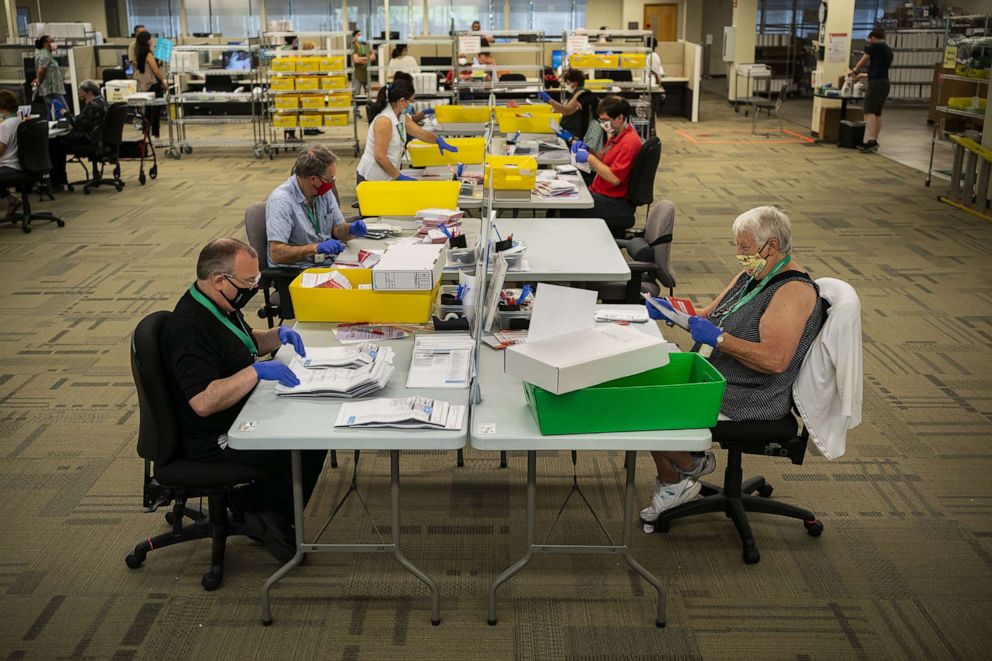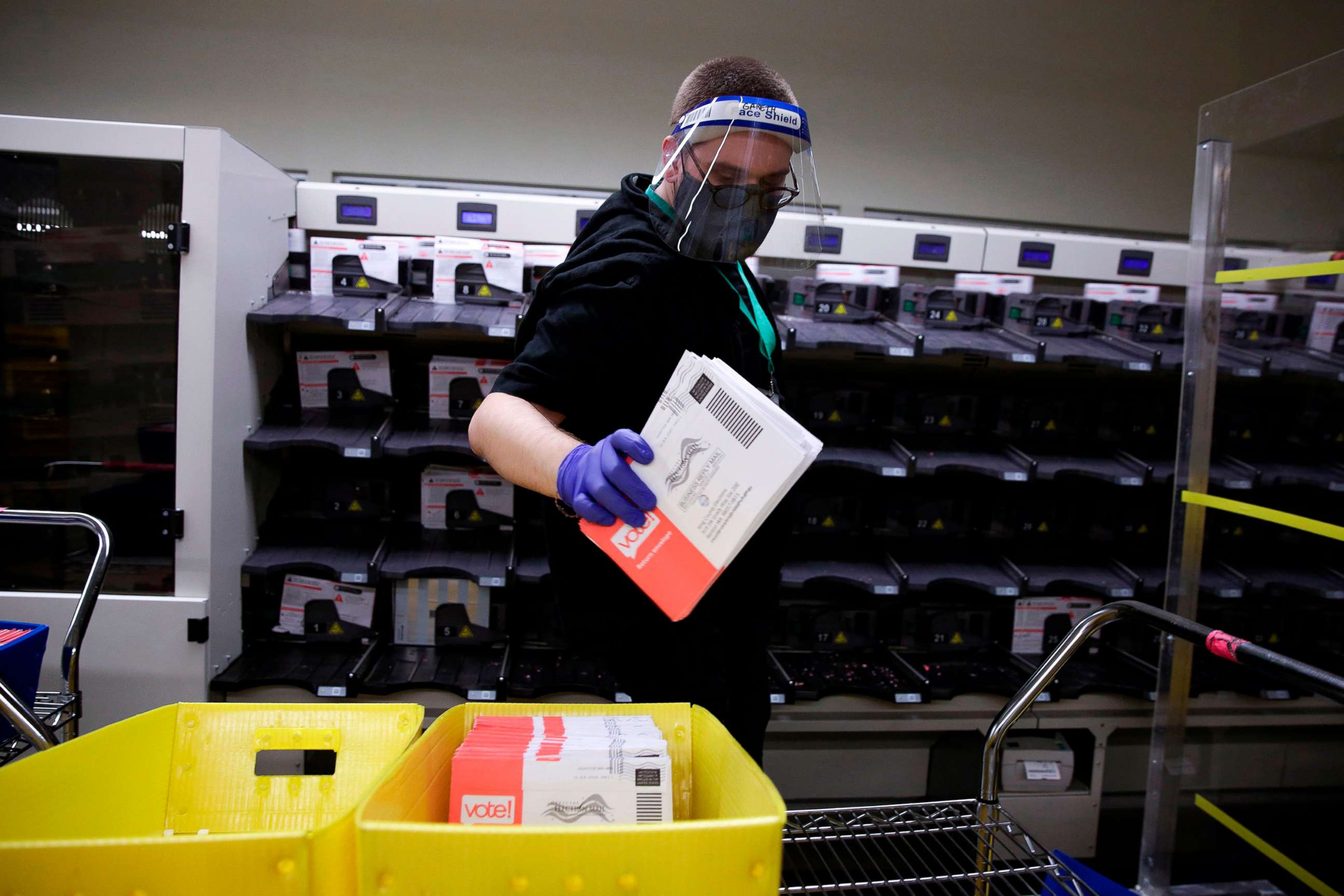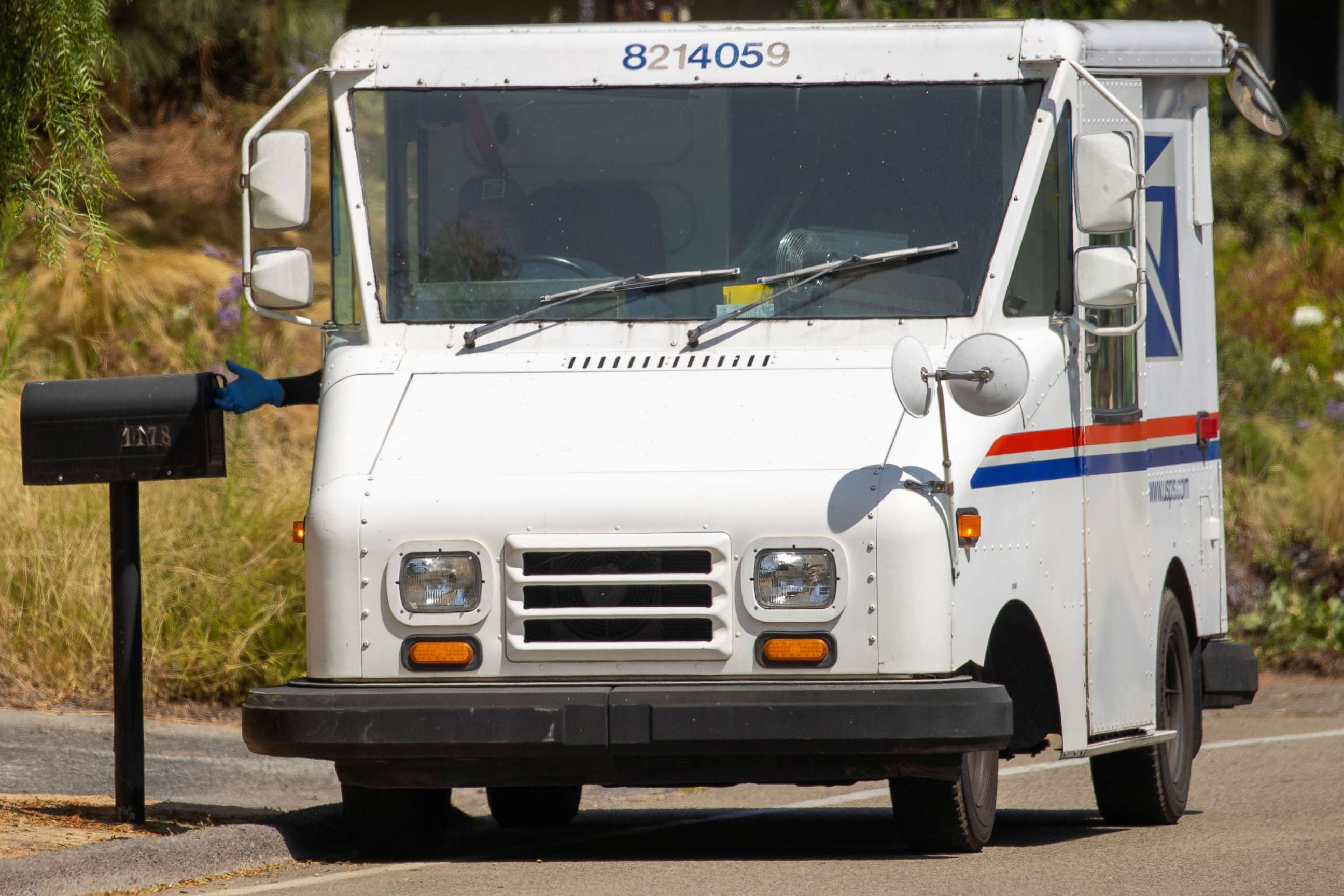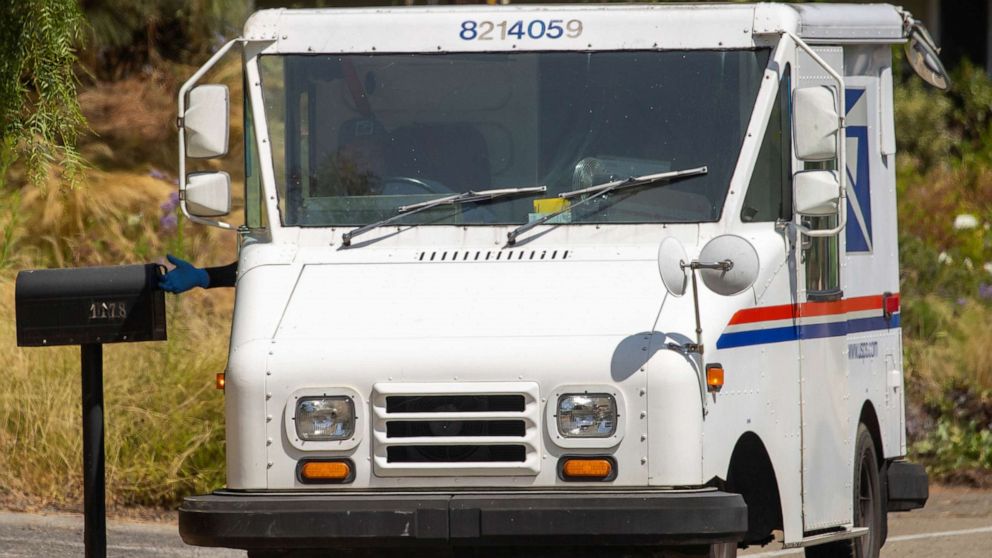How US Postal Service changes could complicate mail-in voting
President Donald Trump has made no secret of his skepticism toward mail-in voting, which he has repeatedly and without evidence claimed will lead to a "fraudulent" election result. Nor has he attempted to hide his ire for the U.S. Postal Service, complaining in April that their operation "has been mismanaged for years."
So when the new postmaster general -- who happens to be a major Trump donor -- enacted guidelines last month that critics say will lead to delays in mail delivery, experts suggested the move could be interpreted as an effort to undermine the viability of mail-in ballots.

"This is going to look political to many people," said Lawrence Norden, director of the Brennan Center's Election Reform Program, "because the postmaster general is a big donor and the president has been railing against mail voting."
In interviews with ABC News, election experts, state election administrators and postal union leaders expressed concern that the implications of recent reforms at the postal service could undermine confidence in absentee voting -- and perhaps even lead to uncounted ballots.
"I worry that, whether there were political motivations or not, there will be political outcomes," said Tammy Patrick, a senior advisor to the elections program at the Democracy Fund Voice, a nonprofit electoral advocacy group.
The White House, for its part, said allegations that the postal service reforms have political underpinnings are "baseless and absurd." A postal service spokesperson echoed that sentiment in a statement to ABC News, calling it "wholly misplaced and off-base."
Regardless of the motive, however, experts said the changes to the postal service could complicate mail-in voting come November. Here is how:
What are the changes to the U.S. Postal Service?
Last month, newly minted U.S. Postmaster General Louis DeJoy, a former business executive and longtime Republican financier, put in place a range of operational and procedural changes at the postal service meant to cut costs of retrieving and delivering mail.
"The Postal Service is in a financially unsustainable position, stemming from substantial declines in mail volume, and a broken business model," DeJoy said in a statement posted on July 27 to the postal service website.

"Given our current situation," he continued, "it is critical that the Postal Service take a fresh look at our operations and make necessary adjustments."
Those adjustments, according to a postal service spokesperson, seek to maintain their "present service standards in an efficient and effective manner" -- but critics of the new protocols, which include limitations on overtime hours for mail carriers, say they needlessly undermine efficiency.
Mark Dimondstein, president of the American Postal Workers Union, warned that the changes "will do nothing but slow down and delay mail."
"We're getting reports from postal workers all over the country and customers that mail is backing up," Dimondstein said. "Mail is slowing down, and in some places they've never seen this (type of) backup."
In addition to the crackdown on overtime hours and pay, Dimondstein said the changes include limiting trips when a mail truck is not full and enforcing stricter start and end times for shifts. The implications of these changes, Dimondstein warned, will be far-reaching.
"If they're not reversed, this affects everything we do," Dimondstein said, "and that includes a vote-by-mail."
How will those changes impact mail-in voting?
With no end in sight for the coronavirus pandemic, more Americans than ever are expected to skip the lines and opt to vote absentee this fall. The postal service will play a crucial role in ensuring a smooth process.
But critics of their shift in protocol are already ringing alarm bells.

"The impact on election mail under this guidance could be severe, and unless addressed, may cause an increased number of ballots rejected for being late at various points in the pipeline," wrote Patrick, the senior advisor to Democracy Fund Voice.
Norden, from the Brennan Center, said he shares concerns that "the new policies may cause delays in people getting their ballots and being able to send their ballot back."
A postal service spokesperson dismissed any suggestion that election mail would be intentionally delayed, and committed to "delivering Election Mail in a timely manner consistent with our operational standards."
"With regard to Election Mail, the Postal Service remains fully committed to fulfilling our role in the electoral process when public policy makers choose to utilize the mail as a part of their election system," the spokesperson said in a statement. "To be clear, however, and despite any assertions to the contrary, we are not slowing down Election Mail or any other mail."
Even so, in Washington state, where elections are largely conducted by mail-in voting, Secretary of State Kim Wyman -- the state's chief election official -- said she remains confident in the postal service's ability to execute its role, but has already seen disruptions in mail delivery.
"(The policy changes) could have a ripple effect on the speed with which ballots are delivered to voters," Wyman told ABC News. "That is certainly a concern."
State election officials elsewhere across the country share that concern. A spokesperson with the National Association of Secretaries of State said the organization has requested a meeting with DeJoy to discuss issues tied to the postal service's ability to do its job in November.
On Capitol Hill, Senate Democrats have taken up the cause, writing in a letter to DeJoy that the procedural change "undermines public trust and only increases concerns that service compromises will grow in advance of the election and peak mail volumes in November."
Even so, election experts say voters have the power to avoid risking their vote. They are encouraging voters to request ballots as soon as possible and not to wait to return them.
"A lot of people are going to be voting in a new way for the first time," Norden said. "If you're going to vote by mail, apply for that mail ballot as early as possible and cast it as early as possible."
What to know about the coronavirus:
- How it started and how to protect yourself: Coronavirus explained
- What to do if you have symptoms: Coronavirus symptoms
- Tracking the spread in the U.S. and worldwide: Coronavirus map
Tune into ABC at 1 p.m. ET and ABC News Live at 4 p.m. ET every weekday for special coverage of the novel coronavirus with the full ABC News team, including the latest news, context and analysis.




